- Home
- US Online Poker Laws 2026: Is It Legal in Your State?
Status Explanations
US Online Poker Laws 2026: Is It Legal in Your State?
There’s no clear answer to whether online poker is legal in the USA because each state sets gambling laws separately. Some states, like New Jersey or Pennsylvania, allow online poker and regulate the activities of operators. Others strictly prohibit online poker on their territory. We’ll consider each state in detail and tell you what alternatives players have in those states where poker is prohibited.
Is online poker legal in the US?
The US legislative and federal system allows each state to independently establish its position on issues important to citizens. This includes the legality of online poker. So, is it legal to play online poker in the USA? Yes, but it depends on which state you're in.
To generalize a little, eight states have legalized online poker. The rest are divided into two groups: one has completely banned gambling, including online poker, and punishes not only the organizers, but also the players; the second keeps poker in a kind of gray area, so players use offshore sites at their own risk.
Federal vs. state online gambling laws
Because of the rather complex legislation system, there’s no specific position regarding gambling in several states. At the federal level, there’s no general ban on online poker, but a number of laws have been adopted that complicate the work in this area specifically for operators. And each specific state can decide to go further and ban any kind of gambling, including poker, on its territory.
Back in 1961, after a history of complete bans on poker rooms and casinos in most states and a period of subservient gambling, the Federal Wire Act was passed. Its goal was to stop criminal telephone betting schemes that were popular at the time. The definition of wire bets includes both telephone bets and bets made on the Internet.
The law itself was specifically targeting sports betting, but for a long time it was believed that it applied to all types of betting. Only in 2011, the DOJ opinion narrowed its scope to sports betting only. This allowed states to regulate online casino and poker games within their borders.
The Unlawful Internet Gambling Enforcement Act of 2006 is also important to understand. It doesn�’t list online gambling or poker as an illegal activity, but it has significantly limited the payment options in this area. Bank payments simply can’t be processed if they involve unlawful internet gambling. But what constitutes “unlawful internet gambling” is up to each individual state to determine.
The 2011 Black Friday crackdown on online poker
Called Black Friday, April 15, 2011, is known for many reasons, one of which is changing the online gambling industry in the country drastically. That day, the three biggest operators in the States were charged by the US Department of Justice. Those were: PokerStars, Full Tilt Poker, and Absolute Poker. The Department accused them of bank fraud, money laundering, illegal gambling, and others. To secure the charges, domain names were intercepted, and all clients of the sites instantly lost access to their accounts and funds in deposits.
PokerStars quickly settled with the DOJ and later repaid its US customers. However, the other two sites, especially Full Tilt, were exposed as financially unstable and accused of mismanaging players' funds.
As a result of these events, the entire online poker scene in America changed in one day. The actions of the government scared off large offshore players. The states themselves had to decide how to treat not only online game operators, but also citizens who play online.
Over time, states like New Jersey, Nevada, and Pennsylvania began building their own legal online poker markets, with strict licensing and oversight. But from the perspective of the entire country, the process is very slow, and sometimes doesn’t proceed at all.
What the UIGEA and Wire Act mean for online poker
Neither of these two federal laws directly bans online poker, but both restrict how it can legally function, especially across state lines. The Federal Wire Act has been around since 1961, while UIGEA was passed in 2006, both restricting online gambling in their own way.
The UIGEA prohibits banks and payment processors from knowingly facilitating payments related to unlawful internet gambling. However, it doesn’t define what "unlawful" means, leaving that up to state law. For online poker, this meant that even legal games became harder to fund.
Many sites left the US market after UIGEA passed. Some large platforms like PokerStars have found a way to get payments, but suffered during the Black Friday we’ve mentioned earlier. The inability to easily and legally organize the payment process forces the entire online poker industry to hold off on legalization attempts. After all, what's the point if the UIGEA still makes the situation extremely difficult?
As for The Wire Act (1961), it has been convenient for the government and individual states to use it as a reason to ban all types of online gambling, although it was originally created to prevent criminal sports betting schemes over the phone.
Since the US Department of Justice clarified the matter in 2011, some states have begun to slowly legalize online poker or at least make small moves in that direction. In 2018, there was an attempt to interpret the Act as prohibiting all types of online gambling, but the initiative wasn’t supported.
Online poker laws by State in 2026
So, taking into account the existing federal regulations, each state can decide for itself whether to legalize online poker and other types of gambling, or at least what activities to classify as "unlawful." If you're located in a state where it's legal, or simply want to know the safest options, check out our list of the best online poker sites in the US.
Let's take a quick look at the situation in each of the 50 states.
Alabama

Alabama prohibits all forms of online poker, and no regulated or legal platforms operate within the state. It’s one of those states, like Washington, that prohibits all types of online gambling.
Playing online with real money is considered illegal gambling, and while there aren’t many examples of individual prosecution, it still carries risk. Under state law, participants may face misdemeanor charges, which can result in small fines and up to one year in jail.
There are no visible movements to change the legality of online poker soon. Public discussion has been minimal, and no bills or task forces are currently active toward permitting online poker in Alabama. To play, you can try to use offshore sites or sweepstakes platforms.
Read more about online poker in Alabama
Alaska

Online poker is currently prohibited in Alaska. Players who use offshore or unlicensed sites violate state law, even though enforcement against such players is rare. In nearly a decade, no formal proposals, studies, or hearings have emerged regarding online poker in Alaska.
Arizona
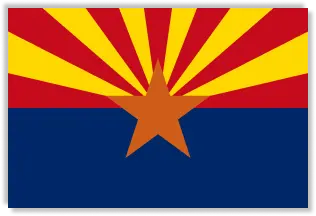
Arizona is also one of the states that considers online poker illegal, but won’t prosecute players who play online on offshore poker websites. However, it won’t help them either if there are problems with the said site.
Arizona citizens have the option of playing in tribal casinos like Talking Stick Resort or Desert Diamond, and playing on the sweepstakes poker platforms, which aren’t considered illegal. The past few years have seen a handful of bills filed to authorize daily fantasy and possible online casinos, but none specifically target poker. So, it isn’t imminent at the moment.
Learn about Arizona's online poker laws
Arkansas
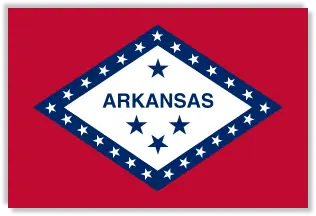
Arkansas prohibits online poker under its state gambling code. Playing real-money poker online with offshore or unlicensed sites is considered illegal, even for players, but prosecution is rare. Even home poker is illegal within the state. Despite certain concessions regarding online sports betting, there are no moves towards legalizing online poker.
California
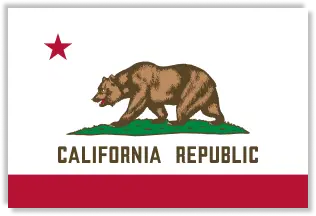
California doesn’t currently permit legal online poker. Even the offshore poker sites are illegal to use for California residents. Technically, participants could be charged with a misdemeanor and face fines up to $1,000. Despite substantial interest from Californians and proposed bills over the years, no movements were made in the direction of online poker legalization.
In 2024, a proposed ballot measure to legalize and regulate poker and casino games online failed to gather enough signatures. It wasn’t the only attempt, but all of them failed.
Learn about California’s online poker situation
Colorado
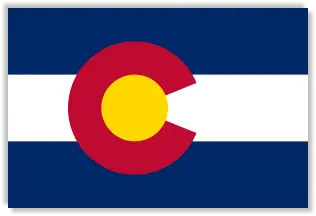
Colorado doesn’t allow online poker under current law. The state legalized sports betting in 2020 but excluded poker from that framework. If you live in Colorado, you can enjoy poker rooms offline in big tribal casinos. If you prefer online gambling, offshore sites or sweepstakes platforms can become an option. Though it still will be considered illegal.
Connecticut

Here’s our first legal online poker state. Well, partly. Connecticut legalized online gambling, including poker, in 2021. The law allows two tribes to offer online gaming under state oversight, but no online poker platforms have launched. According to experts, due to limited market size and lack of operator interest.
Players aren’t at risk of prosecution when playing on authorized platforms, though currently only slots and table games are active. Online poker is legal in theory, but not yet available. Many wait for multi-state agreements that may encourage operators.
Delaware

Delaware was one of the first US states to legalize online poker in 2012. It operates through a state-run system partnered with the Delaware Lottery. It also shares player pools with Nevada, New Jersey, Pennsylvania, and Michigan under a multi-state agreement. In Delaware, you can play legally without risk of prosecution. The market has been limited in size, but a 2023 relaunch is revitalizing interest in it from both players and operators.
Florida
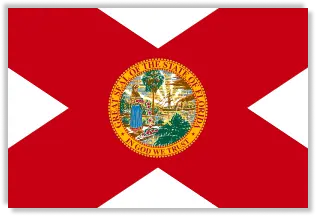
While poker is legal in licensed card rooms and tribal casinos, Florida state law prohibits online gambling. You won’t find any legal platforms to play. Players using offshore poker sites are technically breaking the law and could face misdemeanor charges. Honestly speaking, the examples of such charges are nonexistent, but nevertheless.
Sports betting is legal in Florida, as well as numerous tribal casinos. The state has debated expanded gaming, but online poker hasn’t been included in major legislative efforts. So, no legal options are available right now.
Online poker in Florida: what you need to know
Georgia
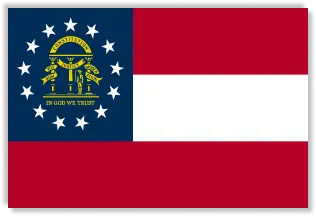
Online poker is illegal in Georgia. Playing poker online violates state gambling codes. It’s considered a misdemeanor; however, players are very rarely prosecuted. Still, it’s not easy to find a way to play without problems.
There have been repeated legislative attempts to introduce sports betting or a state lottery expansion, but online poker hasn’t been part of those discussions. Players can try to use offshore sites, or travel to other states to play.
Legal status of online poker in Georgia
Hawaii
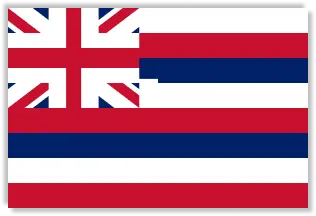
Hawaii has some of the strictest gambling laws in the US, and online poker is explicitly illegal. The state bans nearly all forms of gambling, including online gaming. There have been occasional proposals to legalize gambling to raise revenue, but none have gained traction.
Idaho
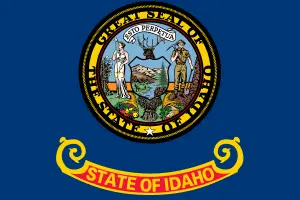
Online poker is illegal in Idaho. Poker rooms are available in the state, but only offline and as long as they are offered by the authorised tribal casinos. There’s no movement in the state legislature to legalize or regulate online poker, and the political climate remains largely opposed to gambling expansion. There are no signs that the situation for Idaho poker fans will change anytime soon.
Find out about online poker laws in Idaho
Illinois
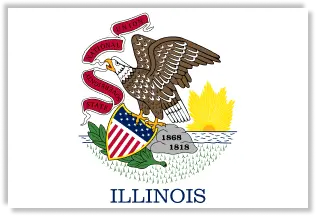
Online poker isn’t currently legal in Illinois, but the state has legalized online sports betting and is actively considering broader iGaming. Several bills have included online poker as part of expanded gambling proposals, though none have passed yet. Nevertheless, at the moment playing poker online is illegal.
Illinois remains a strong candidate for legalizing online poker in the next few years. Now, players can visit tribal casinos and play offline or try offshore websites.
What are the online poker laws in Illinois?
Indiana
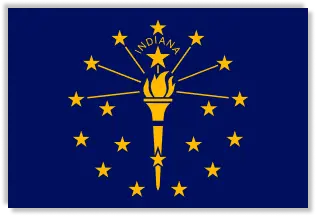
While retail and online sports betting are legal in Indiana, online casino games and poker remain banned. Legislators have introduced bills for full online casino and poker legalization, but they haven’t advanced. Given Indiana’s openness to gambling expansion, online poker may be legalized in the near future, but not at the moment. You can always take a trip to Michigan to play there, or use sweepstakes platforms.
Online poker in Indiana explained
Iowa
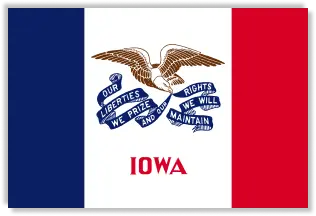
Iowa hasn’t legalized online poker, but the state has a long history with regulated gambling, for example, sports betting. State law prohibits unauthorized online gambling, and players could theoretically face misdemeanor charges for using offshore sites. In practice, this doesn’t happen, but the state won’t protect your interests in a conflict with an offshore platform.
Lawmakers have shown interest in expanding iGaming, including online poker, but no formal bills are currently active.
Kansas
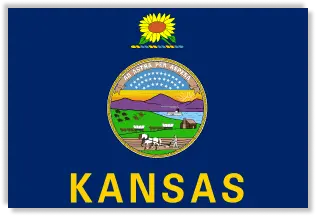
The state permits commercial casinos and has legalized sports betting, but online casino games and poker remain unregulated. The state may offer poker fans offline play at one of the tribal casinos, but when it comes to online poker, there’s not a single legal platform in the state.
Can you play online poker in Kansas?
Kentucky
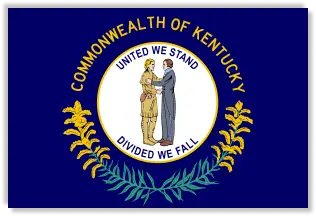
Kentucky prohibits online poker and classifies unlawful gambling as a criminal offense. The main targets of prosecution are organizations or individuals who try to organize such platforms in the state, although such activity is technically considered illegal for players as well. There are simply no active examples of players being prosecuted yet.
Historically, the state has been aggressive in targeting unlicensed operators by famously pursuing lawsuits against PokerStars. As of now, however, no bills propose online poker regulation, and its legalization remains uncertain.
Louisiana
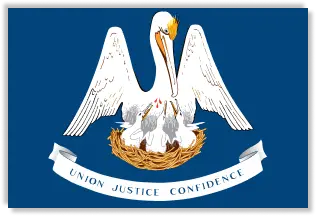
Louisiana doesn’t allow online poker under state law. You can play poker offline in licensed casinos within the state, but online gambling is off limits. Louisiana legalized online sports betting in 2021, giving hope for more regulations in the iGaming sector. However, no formal legislation has been introduced to legalize online poker at this time. Even if it will become an option in the future, it will most likely be connected to the local operating offline casinos.
Maine

Online poker is now legal in Maine, but it hasn’t launched yet. The state recently approved a framework for internet gaming, which could include online poker. This means that, in theory, regulated real-money poker is authorised. However, no state-approved online poker sites have launched yet.
Nevertheless, Maine already has legal land-based poker options. Players can find in-person poker at the state's operating casinos, including Hollywood Casino Bangor. Until the first regulated online operator goes live, Maine can be described as legal but not operational, or pending.
Maryland
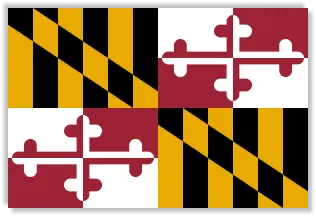
Maryland doesn’t currently allow online poker, though it has legal in-person poker. The state also has regulated sports betting since 2022. Six large offline casinos thrive within Maryland, but so far they haven’t encouraged the administration to take up the issue of legalizing online poker. In 2024, Maryland lawmakers introduced a constitutional amendment proposal, which is a positive signal, but no movement has been made yet.
Massachusetts

Online poker is illegal in Massachusetts. The state has several resort casinos, and launched online sports betting in 2023, but still strictly prohibits online gambling. Lawmakers have expressed interest, and poker could become part of future legislation if online casinos gain support. However, there are no bills or initiatives representing the idea right now. If you miss the poker table, you can always take a trip to offline casinos or Pennsylvania.
Michigan
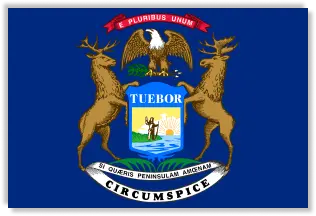
Michigan is one of the most poker-friendly states in the US. Online poker was legalized in 2019, with platforms like PokerStars and BetMGM live and regulated. Players face no legal risk when using licensed platforms. The market is fully legal, well-regulated, and growing. Of course, when choosing a poker website to play, you need to make sure that it’s licensed within the state and approved by it.
Minnesota
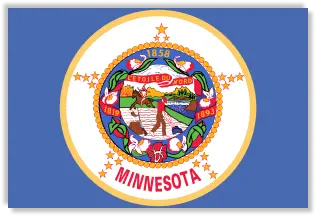
Online poker isn’t legal in Minnesota. In recent years, sports betting bills have gained traction in the state, but iGaming and poker haven’t been seriously considered. At one point, an online lottery was available for players, later to be shut down. Players who participate in offshore poker games risk misdemeanor charges, although there’s no evidence of such charges.
Mississippi

Online poker, like other online gambling, is prohibited in Mississippi. Playing on offshore platforms is a violation of state law and could result in misdemeanor penalties, including fines. However, the offline casino industry is very strong within the state. Players can enjoy numerous in-person poker rooms there or use legally gray offshore websites and sweepstakes platforms.
Missouri
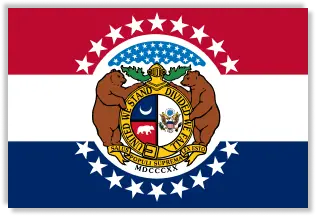
Missouri doesn’t permit online poker and has no regulatory framework for iGaming.
Sports betting bills have been introduced multiple times in recent years, but they’ve stalled due to political disagreements. Seeing how the more accepted sports betting struggles, there are no chances for online poker to become legal anytime soon.
Montana
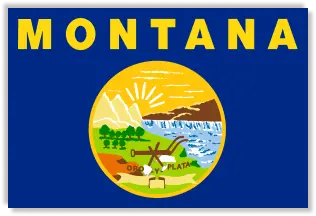
Online poker is illegal in Montana, and the state maintains strict anti-gambling laws. The state allows limited forms of regulated gambling like sports pools and fantasy sports under certain conditions. It also offers numerous poker rooms in-person all over the state. However, Montana says loudly “No” to online poker.
Is online poker legal in Montana?
Nebraska
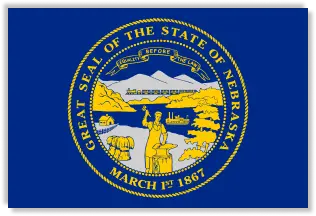
Nebraska is one of the stricter states when it comes to online poker and gambling. While the state has recently legalized brick-and-mortar casinos and expanded gaming, internet-based poker isn’t included in current legislation. The latest attempt to legalise it was made in 2021 but didn’t gain needed support. You can use offshore poker sites or sweepstakes sites, though.
Nevada
Nevada was the first US state to legalize and regulate online poker, launching in 2013. It currently offers legal online poker through WSOP.com, and is a member of the MSIGA. While only one operator is active, the legal framework supports expansion. As a player, you can bet safely as long as you do it on the authorised website. Not to mention that you can visit one of hundreds of live poker rooms in the state.
New Hampshire
New Hampshire doesn’t permit online poker. You can participate in the state lottery and even make bets on sports, but real-money poker isn’t part of its legal offerings. Technically, online poker is in the gray area of law. This allows you to use offshore websites, though absolutely without any protection or support from the state. There’s no evidence that lawmakers will want to change the situation, even despite the success of offline poker rooms.
New Jersey
New Jersey is one of the most advanced online poker markets in the US. The state legalized online poker and casino games in 2013, and platforms like PokerStars, WSOP, and BetMGM operate legally under NJ Division of Gaming Enforcement oversight. The market continues to grow and serves as a model for other states considering poker regulation.
New Mexico
Online poker is illegal in New Mexico. The state permits limited forms of gambling, such as tribal casinos and a state-run lottery, but internet-based gaming isn’t authorized. There have been no serious legislative efforts to legalize online poker, and gambling expansion generally faces resistance within the state. You can get away with using offshore websites, but you'll be on your own if the issue arises.
New Mexico’s online poker laws explained
New York
Online poker isn’t currently legal in New York, though there have been repeated attempts to regulate it. New York offers you plenty of offline options, including tribal casinos and commercial licensed poker rooms. After legalisation of sports betting, it seemed that the next logical step is online poker, but poker fans are still waiting. All online poker websites are illegal within the state.
What are the best New York online poker sites?
North Carolina
North Carolina prohibits online poker and all unauthorized internet gambling. Again, the state offers a good choice of licensed tribal resort casinos, where you can enjoy poker tables, but online betting is off limits. Players accessing offshore poker platforms risk violating gambling laws. Though at the moment, only possible organisers of online poker games are facing the charges.
North Dakota
Online poker is illegal in North Dakota. The state allows some forms of charitable gaming and tribal casinos but bans online poker rooms. Playing poker on offshore sites is a violation of gambling statutes and is considered a misdemeanor. Players still try to reach offshore sites but do so at their own risk. The last attempt to legalise and regulate online poker was made 4 years ago, but to no avail.
Ohio
Ohio doesn’t currently offer legal online poker. The state has legalized and launched both retail and online sports betting, which could be a start for various types of gambling legalization. However, no active attempts have been made since 2021. Playing on offshore platforms isn’t authorized and could technically lead to misdemeanor prosecution. You can use sweepstakes sites that are allowed within the state.
Oklahoma
Online poker is illegal in Oklahoma. The state is heavily influenced by land-based tribal casinos, which actively oppose the possibility of legalizing online poker. That’s why there has been no active attempt to pass such a bill since 2013. Even an attempt to legalize online sports betting in 2022 has failed. If legalization of online poker does take place in the state, it will most likely be closely tied to the existing tribal casinos.
Oregon
Oregon doesn’t allow online poker. Unlike many states that don’t specifically ban online gambling, Oregon has broad and detailed local anti-gambling laws. Players accessing offshore poker sites do so in violation of state gambling law. There aren’t many examples of punishment of players, but by betting online, you not only risk your funds in case of a conflict with an unscrupulous operator, but also violate state law.
Can you play online poker in Oregon?
Pennsylvania
Pennsylvania legalized online poker in 2017 as part of a broad iGaming expansion. Since then, the state has become one of the biggest online poker markets in the country. Players enjoy full legal protection when playing on regulated platforms. You can freely and safely access PokerStars and other licensed sites. Pennsylvania doesn’t yet participate in multi-state liquidity sharing but is expected to join the interstate compact soon.
Rhode Island
Online poker is legal in Rhode Island, as the state legalized online casino games in 2023. Unfortunately, no operators are still interested in launching websites within the state. You can play offline or access the sweepstakes sites. You can also organise home poker gatherings as long as they meet the home poker requirements.
South Carolina
South Carolina has some of the strictest anti-gambling laws in the US, and online poker is explicitly illegal. Even home poker games are technically against the law. And though prosecution of the players who access offshore websites is rare, it’s considered a misdemeanor and can lead to fines or even short jail time.
South Dakota
Online poker is illegal in South Dakota. While the state permits in-person poker at licensed casinos in Deadwood and tribal facilities, internet-based gambling is prohibited. Some consider the legalisation of in-person sports betting in 2020 as a sign of future improvement in the online gambling situation. However, almost five years passed without any active attempts. Players are recommended to visit live poker rooms not to risk being faced with misdemeanor charges.
Tennessee
Tennessee prohibits online poker and all forms of online casino gaming. The state has legalized online sports betting, but left out online poker for now. There has been little to no legislative interest in expanding gambling beyond sports betting. Religious and political opposition have often been named as reasons for any legalisation attempts for the last 4-5 years.
Texas
Despite having a history of gambling within the state, online poker is illegal in Texas, and the state maintains some of the strictest anti-gambling laws in the US. Even live poker rooms operate in legal gray areas under social club models.
There are several poker rooms that operate thanks to the legal loophole, such as Texas Card House, but even their legality is disputed. Due to political opposition, poker legalization remains unlikely soon.
Online poker legality in Texas
Utah
Utah bans all forms of gambling, including online poker, and has no casinos, lottery, or legal betting of any kind. You could say that the state’s laws are among the strictest in the nation concerning online gambling. So, there are no chances that online poker will be legalised within the state shortly.
Vermont
Online poker isn’t legal in Vermont. Basically, there are no laws that would regulate online poker; thus, it stays in the gray area. Online poker websites aren’t licensed in the state, so there are no safe options to play there. You could access offshore websites that allow players from Vermont, but they will lack state protection. Make sure to choose one with a license and good reputation. There has been minimal legislative attention given to iGaming, and poker hasn’t featured in any recent bills.
Virginia
Online poker isn’t currently legal in Virginia. The state only recently legalised sports betting and opened its first in–person casinos. Unfortunately, you don’t have any safe options for online poker within the state. Consider visiting one of the states that already legalised online poker or take a trip to cities like Portsmouth, Bristol, Danville, and Norfolk to enjoy offline poker tables.
Online poker in Virginia: what’s legal?
Washington
Washington State has one of the most aggressive anti-online gambling laws in the US. It’s a felony to engage in unauthorized internet gambling, including online poker. And unlike many other states, prosecution also extends to casual gamblers if they are caught betting online. Poker is available in tribal casinos but not online.
With all offline casinos in the hands of the tribal community, the idea of legalizing online poker is met with extremely strong opposition. It’s unlikely that the state will even consider such a possibility anytime soon.
Is online poker allowed in Washington State?
West Virginia
West Virginia legalized online poker in 2019, but no operators launched till 2025. BetRivers Poker was the first locally regulated website. PokerStars and BetMGM are expected to go live soon. Players will face no legal risk when using licensed sites. However, enforcement is focused on unlicensed operators that can emerge within the state. The legal market is small but growing, and West Virginia supports continued iGaming expansion.
Wisconsin
Online poker is illegal in Wisconsin. The state permits tribal gaming and some charitable gambling, but internet-based play is unauthorized. There are no current legislative proposals to legalize online poker, so getting online poker sites for Wisconsin players is highly unlikely. There are several large tribal on-land casinos in the state, so if they want to expand their influence and move into the online gambling sphere, something will change in the legislative sphere. However, there are no such signals yet.
Wyoming
While the state legalized online sports betting in 2021, poker remains illegal. It’s in a gray area of law, which currently allows players to visit offshore sites at their own risk, or use sweepstakes poker platforms that are allowed. There have been no proposals to legalize poker since 2020, and state leaders have shown little interest in expanding gambling further.
Online poker in Wyoming: legal overview
States where online poker is legal in the US
Only a few states across the country have decided to legalize online poker and online gambling, given the chance to do so after the Wire Act was clarified in 2011. Since each state decides for itself to what extent to legalize online gambling and how to regulate it, the situation in different states is different.
Nevada – first to legalize online poker
Nevada was a pioneer, legalizing online poker in 2013 and launching WSOP.com as the state’s sole licensed operator. It took a whole 2 years from drafting the bill to passing it officially. In 2018, Nevada joined the MSIGA alongside Delaware and New Jersey, enabling WSOP NV players to compete with players in other states.
Despite being a smaller market, Nevada remains significant. For example, it offers high‑profile events and regular bracelet qualifiers during the World Series of Poker season. Surprisingly, WSOP.com is still the only authorized operator. There have been a few attempts to launch other sites, such as Real Gaming, but they have failed to gain the necessary popularity in the state and have ceased operations.
Delaware - legal since 2013
Delaware legalized online poker in 2013 through its Gaming Competitiveness Act, becoming one of the first states to do so. For several years, licensed poker sites powered by 888 offered real‑money play linked to networks in Nevada and New Jersey via the Multi‑State Internet Gaming Agreement (MSIGA). It all was going great for the Delaware poker fans until 2023, when 888 left the scene after its contract expired.
Delaware entered an online‑poker blackout period as no operators launched in its place till 2025. BetRivers Poker was launched, which is already live in Pennsylvania and Michigan. Delaware is regaining its importance as a live and online poker state at the moment.
New Jersey - online poker launched in 2013
New Jersey passed legislation to legalize online poker and casinos in 2013, almost at the same time as Nevada. Which is true, with a wider selection of operators: initial sites included WSOP.com, partypoker, and Borgata Poker. Over time, the state expanded its offerings to include PokerStars NJ, BetMGM Poker NJ, and partypoker NJ.
New Jersey was a foundational member of the MSIGA, which is now being joined by new states that have legalized online poker on their territory. NJ's market remains one of the most competitive and mature in the country. It offers multiple operators, holds tournaments, and even designs promotions. All this creates over $1 billion in revenue, while New Jersey citizens have a safe and regulated environment for playing online.
Pennsylvania - legalised in 2017
Pennsylvania legalized online poker in 2017. However, it took two years until the first licensed platforms launched in late 2019, including PokerStars PA, WSOP PA, BetMGM Poker PA, Borgata Poker PA, and others. Pennsylvania joined the MSIGA in May 2024, making it the largest state by population in the system, and boosting shared liquidity with Michigan, New Jersey, Nevada, and Delaware.
Pennsylvania is open for both live and online gambling fans. It offers several large casino resorts as well as a very wide selection of online poker operators. It makes the states’ poker market one of the strongest in the country, with gaming revenue second only to Nevada.
Michigan - legal since 2021
Michigan passed full iGaming legislation, including online poker, in 2021, becoming one of the newest major-regulated poker states. The road was rough, but they made it, and now the state has turned into one of the second-largest regulated online poker markets in the country.
By mid‑2022, Michigan joined MSIGA, allowing poker operators to pool liquidity with Nevada, New Jersey, and Delaware. Legal poker sites live in Michigan include PokerStars MI, BetMGM Poker MI, and WSOP MI. Michigan now supports multi‑state tournaments and larger prize pools thanks to shared liquidity networks like PokerStars MI‑NJ and BetMGM across three states. This is a successful experience that can encourage other states to follow.
West Virginia - legal, but no poker sites yet
West Virginia legalized online poker in 2019, and joined the MSIGA in late 2023. However, for many years, the state was still in a bit of a poker slumber, without any operator launches. It changed only recently, when BetRivers Poker launched as the first WV online poker operator. Since the state was already a member of MSIGA before this time, players on BetRivers Poker were able to compete in a multi-state pool with Pennsylvania, Michigan, and Delaware right away.
On the one hand, it's good that West Virginians finally have a legal way to safely bet on online poker. On the other hand, there's only one operator so far, so the market isn't exactly large or strong. We'll see how that changes in the next couple of years.
Connecticut - legal but not active
Connecticut is one of two states that have already legalised online poker but hasn’t yet received any benefit from this process. Simply because not a single operator has yet launched its website authorized within the state borders.
The thing is that an online poker site can be launched not by any large operator, but by two specific tribes that have received official permission from the state. They already operate well-known land-based casinos with a good reputation, which you can still visit in person. Many players hope that multi-state agreements may encourage tribes, but as for now, no online poker is available within the state.
Maine -legalised in 2026 (not launched yet)
Maine has just become one of the latest states to legalise online gambling, including online poker. A new law authorising internet gaming under a tribal framework has officially opened the door for regulated online poker. Well, at least on paper.
What sets Maine apart is who can operate it. Rather than adopting a wide commercial licensing model, internet gaming rights are tied to the state’s tribal governments. In practice, this usually means that tribes can launch online platforms either independently or in partnership with established gaming operators. Non-tribal casinos are not automatically granted the same opportunity to offer online poker.
However, legalisation does not mean that players can log in and play immediately. Maine still needs to complete the practical rollout phase, which includes finalising the rules and licensing details and launching an operator. Until a regulated poker room goes live and starts accepting in-state players, Maine can be described as legal but not operational, or pending.
How to play legal online poker in the US?
As we’ve already established, you can only legally play online in those states where online poker is already legalized and authorized websites exist. To play safely and legally, you need to:
- Physically be in the state. You don’t have to be a resident, but you must be physically present in that state when playing.
- Choose the authorised website. Depending on the state, there could be just one (like WSOP NV in Nevada), or multiple, like in New Jersey.
- Create an account. You need to register and deposit our funds, stating that you are in the said state.
- Start playing. Once set up, you can participate in ring games or tournaments. In MSIGA states (like MI, NJ, NV), you’ll play against a larger, shared player pool.
Live poker laws and regulation in the United States
Live poker in the United States is regulated primarily at the state level, and laws can vary significantly from one jurisdiction to another. If we generalize all the online poker platforms available on different websites, they can be grouped into four groups:
- Tribal casinos operated by Native American tribes. This is the most common case. Usually, these are resorts with large casinos and dozens of poker tables.
- Commercial casinos. The most striking example is, of course, Las Vegas. Such casinos are required to be licensed by a specific state and regulated according to its requirements.
- Licensed poker rooms or clubs. In most cases, such establishments operate semi-legally, positioning themselves more as sports clubs and organizing poker competitions.
- Riverboat casinos. These are rare cases, but can be found in some Midwest and Southern states.
Many states also practice home poker or charity poker events. Of course, they must meet strict requirements, the main one being: no income for the organizing party and equal opportunities for winning for everyone.
There are a number of states where live poker is banned, for example, Utah, Hawaii, and South Carolina. These are usually the states with the strictest gambling laws, so if you live there, you'll have to travel to another state to play.
How Multi-State Online Poker works
The foundation of interstate sharing is the Multi-State Internet Gaming Agreement (MSIGA). It’s a formal compact that states a sign to allow interstate player liquidity for online poker. States that legalize online poker can choose to become a member of MSIGA and take part in the interstate online poker sharing. At the moment, these states participate:
- Nevada
- Delaware
- New Jersey
- Michigan
- West Virginia
States like Rhode Island already legalized online poker but didn’t join the MSIGA due to various reasons.
Participation in this system greatly helps individual states, because successful poker requires liquidity. And some states, due to their small population, find it difficult to achieve the necessary liquidity. Players can also look forward to tournaments with bigger prize pools, more poker tables, and more game types available. Of course, along with benefits, limitations come as well:
- Only licensed sites in participating states can offer shared liquidity.
- Poker-only; casino games aren’t included in MSIGA.
- Each platform must be approved for interstate operations by all states involved.
Real-money vs. social and sweepstakes poker
In a situation where online poker is banned in the state and offshore sites aren’t a legal alternative, sweepstakes platforms come to the fore. They are legal in many states because they don’t use real money to place bets in poker games. Instead, you sign up for a site and receive two types of electronic coins:
- Gold coins (GC), which you can use for betting, but only for fun, as you can't redeem them for cash.
- Sweeps Coins (SC), which you can bet during specific tournaments or cash games and later redeem for real cash or gift cards.
| Real-money Poker | Sweepstakes Poker |
|---|---|
| Legal only in select states with regulation | Legal in almost all US states (except WA, ID) |
| Use real money to buy into games and win real cash | Play with virtual currencies like Gold Coins & redeemable Sweeps |
| You can win real cash, withdrawable directly | If you win, Sweeps Coins can be redeemed for real cash prizes, but you need a certain number of them |
| Can share liquidity with other states through MSIGA, if the state is a member | No shared liquidity |
Perspectives
One can say that the future of online poker in the US is cautiously optimistic. On the one hand, eight states have already legalized online poker, and six are actively developing this area. On the other hand, states like Washington or Hawaii are actively advocating for a ban on online gambling and don’t allow any amendments or bills in favor of online poker. At the same time, the majority of states make some attempts from time to time, just lazily and slowly.
Trends that could push states toward legalization
- Revenue Potential: States like Michigan gained millions in revenue after legalizing online poker.
- Public demand: In many states, it may be poker fans who force change as demand grows.
- Expansion of MSIGA: Participation in the program allows you to immediately solve the liquidity issue even for small states, promising good conditions for players.
- Platform innovation. Modern platforms (e.g., PokerStars, WSOP, BetMGM) now offer secure geolocation, anti-collusion tools, and responsible gaming features.
Obstacles states face
- Opposition from Tribal casinos. In many states, tribal casinos have a huge influence. They are afraid of competition and therefore oppose all legalization proposals.
- Federal Uncertainty. Although the Wire Act has been clarified (favoring state regulation), federal reinterpretations or court rulings could still impact poker's legal status, especially across state lines
- Political or moral resistance. Many states remain politically or culturally opposed to expanding any form of online gambling.
A number of states, for example, Illinois or New York, will likely be able to pass the necessary bill soon and join those states that have already legalized online poker. But it doesn't look like the entire country is going to legalize unless there are some major political changes, which is unlikely.
Reach our team to find out more information:

